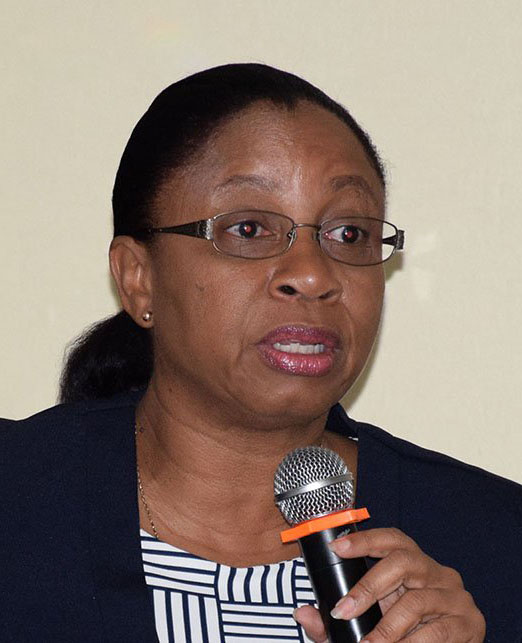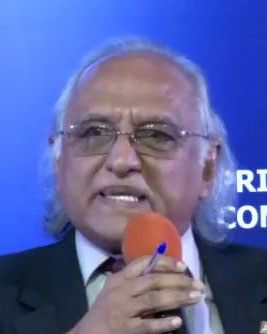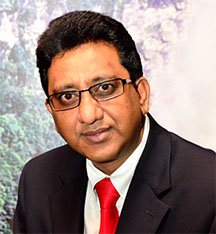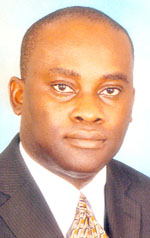Acting Chief Justice Roxane George-Wiltshire yesterday ruled that the current house-to-house registration exercise being conducted by GECOM is not unconstitutional but she also cautioned that existing registrants cannot just be deleted from the list unless certain criteria are met as provided by law—that being by death or by specified means of disqualification.
In a multi-prong ruling the judge also said that while the Guyana Elections Commission (GECOM) as an independent body has the right to execute its mandate as it sees fit, it must be cognizant of the fact that as the Caribbean Court of Justice (CCJ) had pointed out it is not operating in the normal electoral mode, but rather against the background of a validly passed no-confidence motion and so these are all factors which ought to be taken into account by the Commission.
GECOM is to hold a key meeting today at which point a decision could be taken on house-to-house registration.
Validating the registration exercise which she said is clearly provided for by law, the Chief Justice said it is entirely within the remit of the Elections Commission to resort to that process as a means of updating the voters’ list.
Christopher Ram, an attorney and chartered accountant, had argued in his fixed date application that the house-to-house registration exercise was being undertaken in violation of the Constitution which required the holding of elections within three months of the passage of a no-confidence motion against the government.
The motion against the David Granger-led coalition APNU+AFC government was passed on December 21st of last year.
Ram’s position is that the registration exercise was in violation of the letter and spirit of the Constitution and the judgment and consequential orders made by the CCJ in the consolidated cases stemming from the passage of the motion.
In his request of the Chief Justice to grant a conservatory order prohibiting GECOM, the Chief Election Officer, and or Commissioner of National Registration from conducting the registration exercise, Ram (the applicant) had said that Article 106 (6) and (7) became immediately engaged in accordance with the CCJ ruling.
Arguing in his fixed date application which the Chief Justice pointed out amounted to Ram’s interpretation of the CCJ ruling, he contended that that meant that elections were to be held by September 18th—three months from the June 18th ruling of the CCJ, as the original three-month period from passage of the motion to March 21st of this year had been overtaken by litigation.
Article 106 (6) of the Constitution says “Cabi-net, including the Presi-dent, shall resign if the government is defeated by the vote of a majority of all the elected members of the National Assembly on a vote of confidence.”
Meanwhile, Article 106 (7) adds, “Notwithstanding its defeat, the Government shall remain in office and shall hold an election within three months, or such longer period as the National Assembly shall by resolution supported by not less than two-thirds of the votes of all the elected members of the National Assembly determine, and shall resign after the President takes the oath of office following the elections.”
The Chief Justice noted that the CCJ specifically said that it would not be setting a date by which elections were to be held as that was a matter for the politicians and that the court would not intervene in that realm.
She said that there was an “immediate flaw” in Ram’s application which sought to argue that the CCJ had, whether expressly or by implication set a date for the holding of elections. “It (the CCJ), did not, neither expressly nor by implication set such a date,” she said.
As a matter of fact, she noted that the court had expressly said that it could not set a date for elections and that she could not and would not either, especially being bound by the court above her.
Against this background she said, too, that she could not and would not grant an order also being sought by Ram to have her specifically compel the GECOM to hold elections by September 18th. As the CCJ had ruled, the judge said that it was not within her remit to direct GECOM or the government as to when elections are to be held.
As a matter of fact, the judge said that she was bound by the court above her (the CCJ) which itself did not set a date for the holding of elections.
To the CCJ saying that Article 106 (6) and (7) needed to be complied with and having set no date for elections, the Chief Justice stressed that effect must now be given to the latter subsection by which the Constitution provides for an extension by the National Assembly.
Opposition Leader Bharrat Jagdeo has repeatedly said that the opposition will not be returning to Parliament to grant an extension of time.
Justice George-Wiltshire stressed that it cannot be said that the house-to-house registration exercise is in and of itself unconstitutional or unlawful, and that she did not see how it violates Article 106 (6) and (7).
On this point, the Chief Justice said that subsection seven of 106 would have to be activated, also in keeping with the CCJ ruling, by which the National Assembly can grant an extension of time if the elections are not held within three months of the passage of the no-confidence motion.
GECOM has indicated that the registration exercise would likely conclude no earlier than October 20th.
The judge said that Ram provided no evidence of a breach or possible breach of legal provisions in the conduct of the registration exercise nor was there any aspect of the CCJ ruling invalidating the process.
She said that while the applicant may not like the timeline for the registration process or may be peeved over a direct date not being declared by the courts for the holding of elections, GECOM does have the right to conduct the registration exercise and that it has not acted unreasonably in so doing.
The judge said that GECOM is an independent body in which electoral responsibility has been vested, and that she could not say to the Commission if, how and when it should conduct such an exercise, nor could she order that the current exercise be stopped.
She said that what the court is empowered to do is adjudicate on the constitutionality or lack thereof of the process.
Meanwhile on the issue raised by Ram regarding the deregistration of registrants during the house-to-house exercise, Justice George-Wiltshire said that while he spoke of thousands of persons being so deregistered, Ram provided no evidence to substantiate this claim.
Notwithstanding this, however, she said that in accordance with law, Ram’s contention was correct that existing registrants could not be deleted from the list just because they are absent from the country or district in which they ordinarily reside or even if they are not at home at the time enumerators visit.
Noting on this point that the right to vote is a sacrosanct constitutional one, the judge made it clear that the laws in Guyana do not provide for a residency requirement and as such one did not have to be residing in a particular area to be registered.
She said that whichever part of the country a person may be, they are to be able to visit the registration office in that area to have their names added for voting there, before it can be taken off from the list.
She said, too, that persons overseas are to be able to return home to Guyana and their names are to be still found on the list for them to vote.
The judge made it clear that a person’s name can only be removed from the list through death or if they otherwise become disqualified under Article 159 (2), (3) and (4) of the Constitution.
Article 159 (1) says that “No person shall vote at an election unless he or she is registered as an elector.”
Subsection (2) then adds, “Subject to the provisions of paragraphs (3) and (4), a person shall be qualified to be registered as an elector for elections if, and shall not be so qualified unless, on the qualifying date, he or she is of the age of eighteen years or upwards and either –(a) is a citizen of Guyana; or (b)is a Commonwealth citizen who is not a citizen of Guyana and who is domiciled and resident in Guyana and has been so resident for a period of one year immediately preceding the qualifying date; and (c)satisfies such other qualifications as may be prescribed by or under any law.”
Subsection (3) goes on to add, “No person shall be qualified to be so registered who on the qualifying date is a person certified to be insane or otherwise adjudged to be of unsound mind under any law in force in Guyana.”
According to subsection (4), “No person shall be qualified to be so registered if during such period (not exceeding five years) preceding the qualifying date as may be prescribed by Parliament, he or she has been convicted by a court of any offence connected with elections that is so prescribed or has been reported guilty of such an offence by the High Court in proceedings under article 163: Provided that Parliament may empower the court to exempt a person from disqualification for registration on account of such a conviction or report if the court deems it just so to do.”
Noting that the different pieces of legislation in the electoral laws are quite convoluted, the Chief Justice urged that it may be timely for necessary revision geared towards harmonizing provisions.
Chief Justice George-Wiltshire also delivered rulings on notices of application in which GECOM had asked her to recuse herself from hearing Ram’s challenge, citing bias and by the Attorney General who had argued that the CCJ had already dealt with the issues raised by Ram in his fixed date application, and that his action filed before the High Court therefore amounted to an abuse of the process of the court.
Referencing the statement she made, about which the Commission alleged bias, the judge said that it was made during an in-chamber hearing and she had also alluded to the fact that in the context of Article 106 (7), constitutional provision had been made for an extension of time by the National Assembly for the holding of election.
The judge pointed out that nowhere in its complaint of bias against her did GECOM make observation of her reference to that particular subsection.
The Chief Justice said that the GECOM failed to establish bias on her part, while noting that its application was without merit and a waste of the court’s time for which it incurred 75% cost on the sum of $500,000.
Counsel for GECOM, Senior Counsel Stanley Marcus had contended that the Chief Justice’s pronouncement of her interpretation of the CCJ ruling being that elections should be held no later than September 18th, 2019 – three months from June 18th when the court would have rendered its ruling, amounted to bias.
Meanwhile, as regards the AG’s notice of application, the Chief Justice noted that the issue raised by Ram where he sought to have the court issue a coercive order that elections be held by a specified time had been thoroughly dealt with by the CCJ—Guyana’s final appellate court.
Reminding that the Trinidad-based court had said it will not announce a date by which the elections were to be held, the judge explained that it would be imprudent for Ram to then seek any order of the lower court compelling the Elections Commission to take steps to have elections held by September 18th.
The judge said it was an abuse of the process of the court.
Counsel for GECOM and the AG had argued that the issues raised by Ram had been extensively dealt with by the CCJ.
On the award on court costs, Ram was ordered to pay the respondent CEO of GECOM $500,000 having lost his substantive case to invalidate the current house-to-house registration exercise; while the AG has to pay 80% cost on $500,000 to Ram who succeeded in his argument that registrants could not be deleted from the list of electors unless through the exceptions provided for by law.








